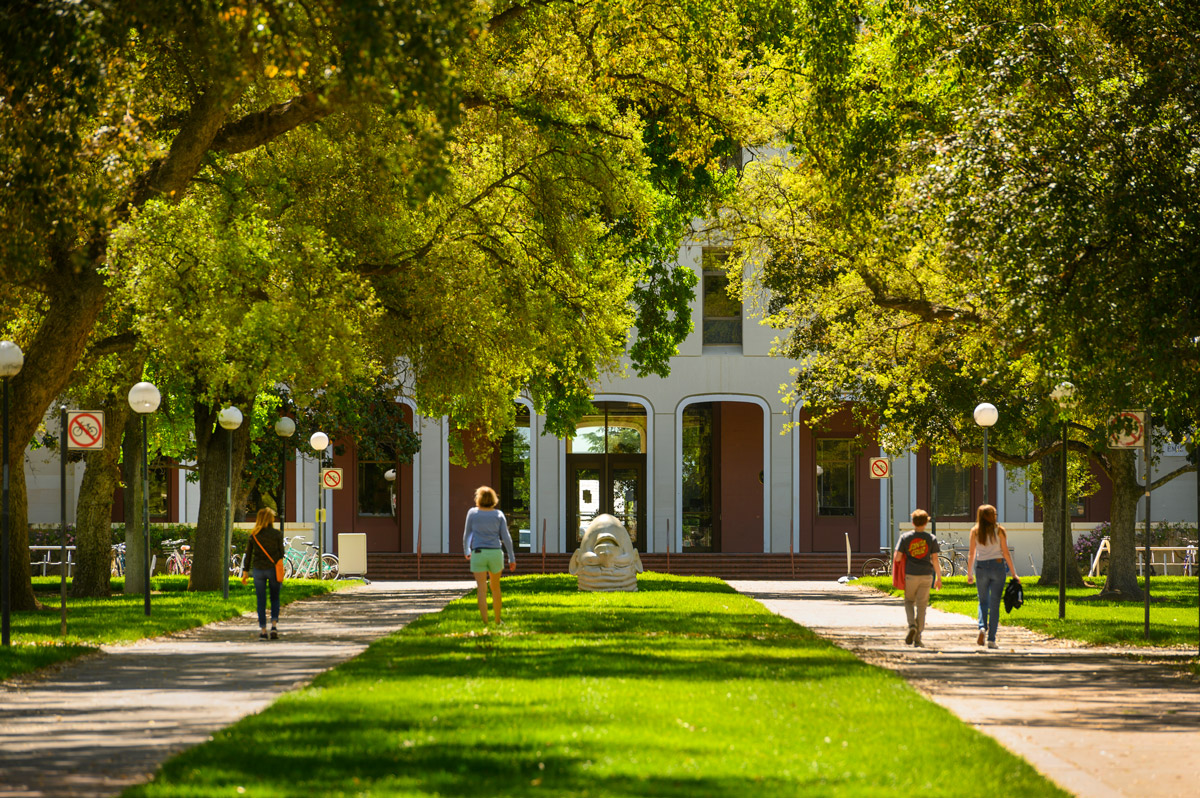

By Jess Taylor
DAVIS – Thrive Mentorship at UC Davis is a group of upperclassmen and alumni that help underclassmen who need guidance during their college journey. “How to Get A’s” is a part of their webinar series with tips and tricks for school and future professional opportunities.
Richard Kim graduated from UC Davis in 2018 and spoke during the webinar on Zoom. He was planning on attending graduate school but took an offer as a computer science data scientist at E. ventures.
Kim had a rough start at Davis because he was never a good student. First off, he had no idea where Davis was. Being from Florence in Southern California, he thought the school was out of state because of the six-hour drive; this drew smiles and laughs all across the cameras.
“I did not choose a major until the day of orientation,” Kim informs. “I slept fourteen hours a day and missed almost all of my lectures.”
All of this goes to say that when he started college, he had no direction as to where he wanted to go. He tells his audience this to paint a picture that he was not the smartest guy, but he figured out how things work.
After his freshman year of college, he got straight A’s every year. With this statement, he went on to enthusiastically share how other students can get also get A’s.
Beginning, Kim shares three requirements to get all A’s: attend most lectures, have a planner and finish all assignments on time.
“You can still get A’s if you miss a few lectures,” he says. “Have a planner for assignments and exams. Even if you procrastinate, submit your assignments on time.”
A vital tip he shared to start strong is knowing the syllabus. Additionally, he mentions it is essential to build rapport with professors and attending office hours to ask questions about the class or their research.
Prior to this, look into professors’ teaching styles before registering for class. Be realistic with the quarter’s workload because achieving good grades requires being active before signing up for a class.
Moving onto his “5 Tips for that A” segment, Kim asks, “What is the currency for college students? What is the most valuable to us?” Waiting a few moments for responses in the chat, he answers it is time. Students roughly have four years in school and have to make the best of what they are given. With this, he began his tips.
Starting with a humorous story of missing the bus to class and taking the late one, he explains why paying attention is crucial.
“As I snuck in through the back door, I realized that no one was paying attention to the professor. They were either distracted on Facebook or watching football highlights.”
A student needs to find their focus. Studying is not about the length of time; it is about channeling the time one has into a mode of concentration and focus.
Two tips for finding focus Kim recommends is using airplane mode on cellphones and moving it away. Though airplane mode helps, the distraction is just as prominent as seeing a phone when you can feel the vibration.
Next, he suggests blocking distracting sites, especially since web surfing is much easier with virtual learning. Google has an app called “Pause” that he uses. “When you go onto a website, it gives you the opportunity to think twice before going on.”
Third, Kim was adamant about using the Pomodoro technique while studying. Students know how easy it is to zone-off or fall asleep when preparing for homework or a test. By using a timer or an app, like Flow, the intervals of rest allow students a moment to recharge their focus.
Another crucial factor is creating a to-do list.
“It doesn’t matter what kind, just put things down!” he says.
Writing the work that needs to be done out on paper or using a phone app is helpful. Realistically speaking, he says that since students take their phones everywhere, an app could be more useful when on the go.
Lastly, he emphasizes the importance of creating a calendar. To-do lists allow students to see what needs to be done for the day, but a calendar gives a broader view of the most important dates coming up.
Giving his concluding thoughts, Kim depicts the importance of surrounding yourself with like and right-minded people to get straight A’s because it will last beyond a student’s college years.
Talking about Thrive, he highlights how mentorship is critical for school, interviews and life. When he had questions and did not know who to ask, he could rely on his mentor for insight.
Kim thanked everyone for attending and hopes that his tips will help those striving for straight A’s. His presentation was insightful and extremely encouraging to students watching, who feel setback from the difficulties imposed by the pandemic.

Jess Taylor is in her senior year at UC Davis from a small town called Wheatland. She is finishing her studies in English and Human Rights.
Support our work – to become a sustaining at $5 – $10- $25 per month hit the link:
